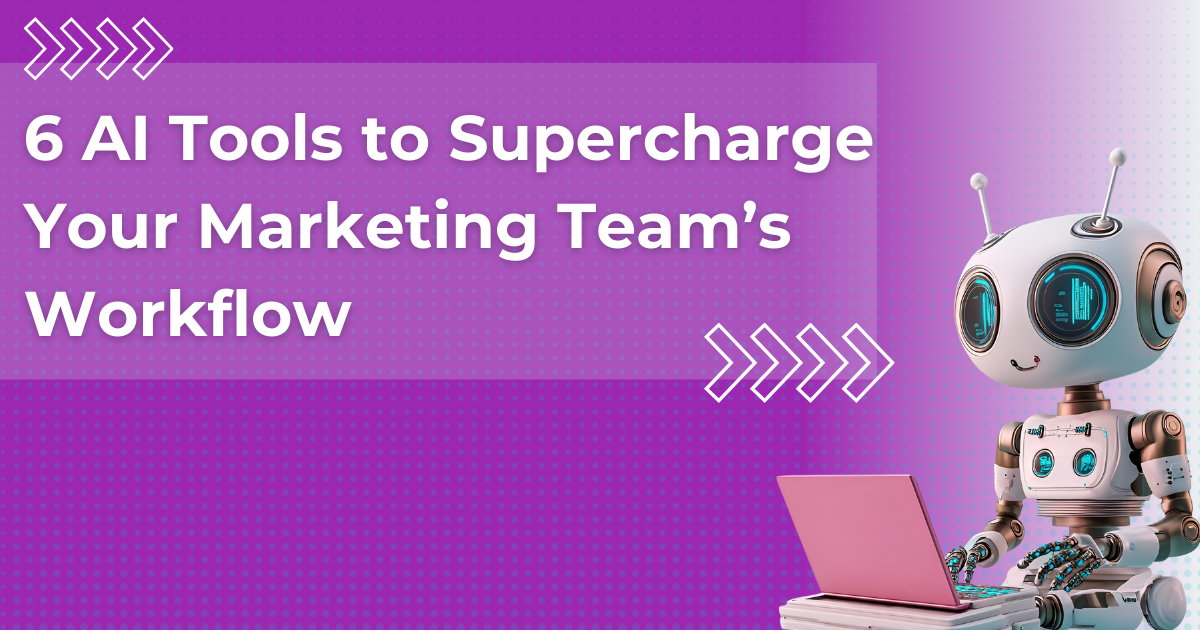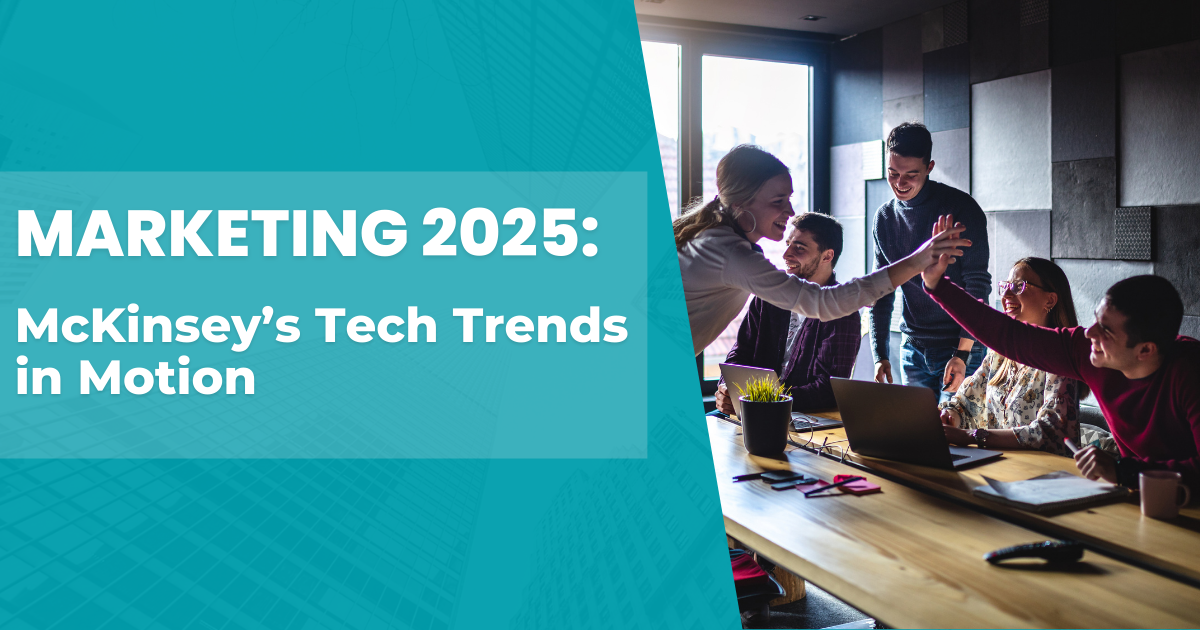AI Tools to Supercharge Your Marketing Team’s Workflow
Agentic A.I. in 2025
Agentic AI in 2025: The Rise of Self-Driving Marketing.
As we move deeper into 2025, the technological trend redefining digital marketing is agentic AI. While generative AI captured headlines in previous years for its ability to create content, ideate, and gain more significant insights, agentic AI represents the next evolution, systems that don’t just respond to prompts, but actively pursue marketing goals with increasing autonomy.
This shift isn’t just theoretical. AI-driven automation fundamentally alters campaign execution, customer engagement, and performance optimization, to name a few. But are we truly witnessing the seamless revolution that tech analysts projected, or are unforeseen challenges emerging?
From AI-powered customer journey management to autonomous marketing orchestration, let’s explore what lies ahead.
1. The Rise of Autonomous Marketing Agents
Agentic AI has emerged as a transformative force in digital marketing operations, evolving beyond simple task automation to handle some complex marketing workflows with minimal human oversight. Platforms like Salesforce, HubSpot, and Adobe have integrated AI agents that can independently manage customer journeys, optimize ad spending, and orchestrate multi-channel campaigns.
These agents not only execute tasks but also learn from outcomes to improve performance continuously. Marketing teams are embracing these tools for their ability to process vast amounts of data and act on insights faster than human marketers could. However, while these agents deliver speed and efficiency, they are not “self-driving”, and their increasing adoption raises concerns about marketing strategy ownership, job displacement, and the risk of over-relying on algorithmic decision-making
Organizations must develop frameworks that balance AI autonomy with human oversight, ensuring these powerful tools enhance rather than replace strategic thinking while addressing ethical considerations around customer data usage.
2. Hyper-Personalization at Scale
Agentic AI enables one-to-one marketing at an unprecedented scale, moving beyond basic segmentation to genuine individualization. AI agents now autonomously create, test, and refine personalized content for individual customers based on real-time behavioral data and historical interactions.
Companies leveraging these capabilities have seen significant improvements in engagement metrics and conversion rates. However, the success of AI-driven personalization hinges on data quality, seamless integration across tech stacks, and compliance with evolving privacy regulations.
For broader adoption, vendors need to develop more accessible solutions that simplify implementation while maintaining robust personalization capabilities.
3. Collaborative Human+AI Marketing Teams
The vision of collaborative human+AI marketing teams is taking shape across the industry, with agentic AI evolving into true partners for marketing professionals rather than just tools. Specialized agents can now handle everything from content optimization to predictive analytics, with forward-thinking organizations developing "augmented marketing teams" where human strategists work alongside AI agents.
These hybrid teams have the potential to outperform all-human and highly automated approaches in campaign performance metrics. Yet, many organizations in these early days will struggle with defining effective collaboration models. Some marketing professionals may resist delegating significant autonomy to AI systems, while others will abdicate too much decision-making authority. The most successful implementations will occur when companies invest in both AI capabilities and human upskilling, creating clear frameworks in which critical decisions belong to humans versus AI agents.
While most marketing organizations are still experimenting with optimal collaboration models, those that have achieved clear human-AI workflows, especially in data-intensive areas like media buying and performance marketing, can see promising results.
The Road Ahead
As we navigate 2025, one thing is clear: agentic AI is not just a passing trend—it’s a force reshaping the marketing landscape. Looking ahead, we anticipate even more incredible transformations, including:
- AI-driven strategy development that anticipates market shifts before they happen.
- Predictive analytics advancements that refine audience targeting and campaign performance.
- Interoperability between AI systems to create fully autonomous marketing ecosystems.
As these trends evolve, organizations that thoughtfully integrate agentic AI while preserving human creativity, professional experience and perspectives, and strategic oversight will succeed and define the next generation of marketing excellence in an increasingly AI-augmented landscape.



